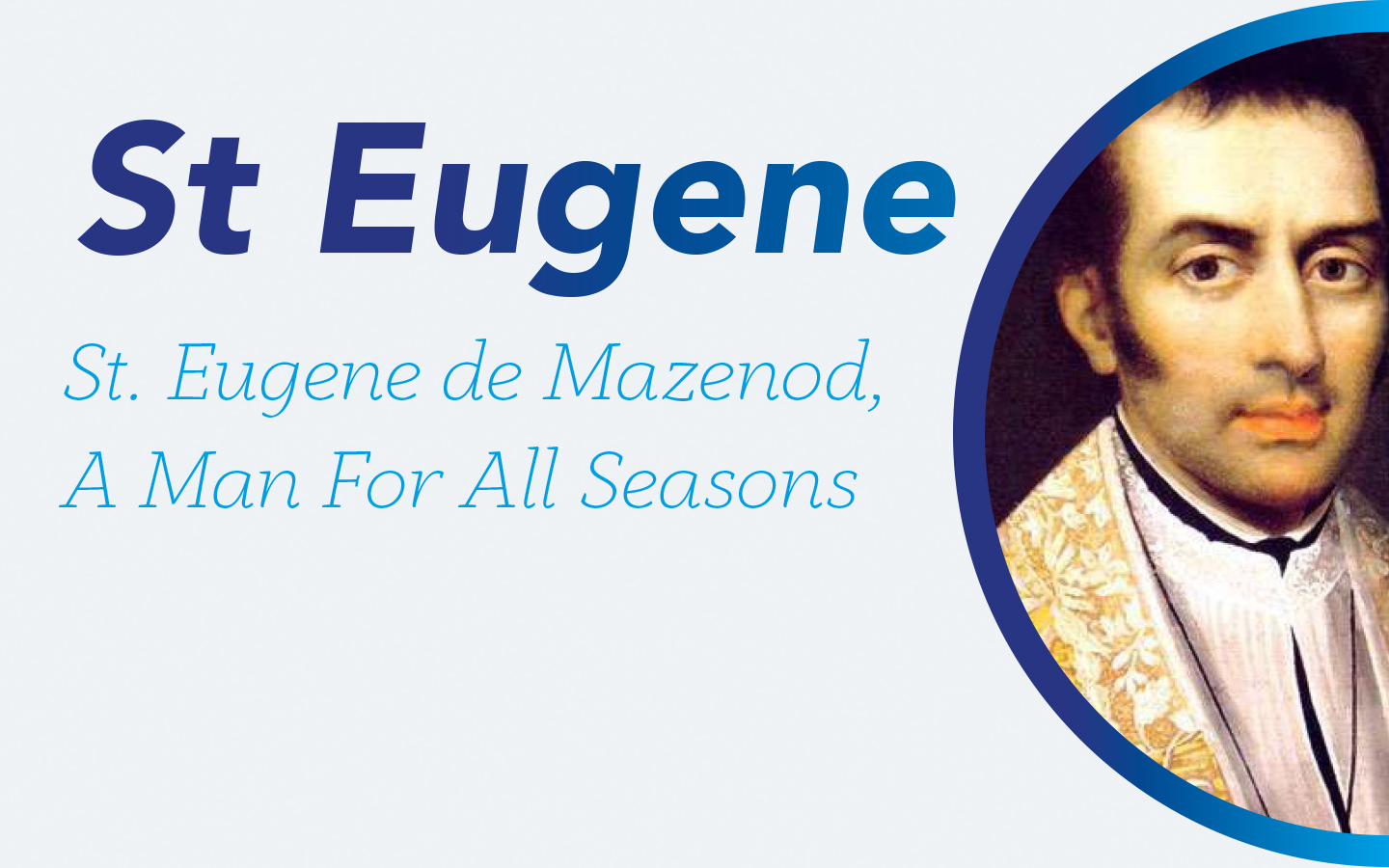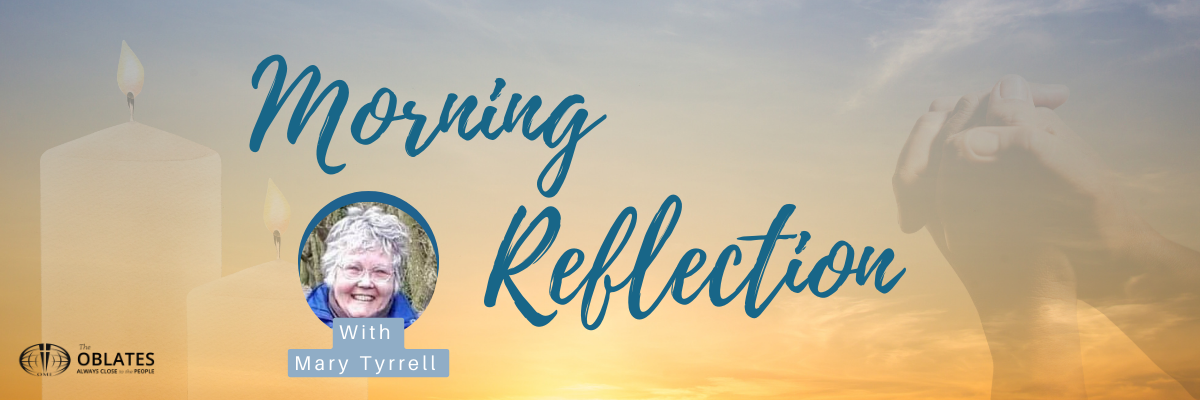Oblate News
St. Eugene de Mazenod Founder of the Oblates

Eugene – A Man For All Seasons
We live a world today, when perhaps saints are not too fashionable. They may seem to us as men and women who come from a vastly different time and world than we do. In a sense they do. We may even ask if they are relevant to our modern age. Saints are not simply to just be admired. They are held up to us as role models that we can look to and whose lives we can learn from. They may even encourage and challenge us. Eugene is such as saint.
Would it be an exaggeration to describe St. Eugene as a man for all seasons? Eugene was born into a wealthy family at the time of the French Revolution. They were forced to flee to Italy as exiles. While there, his parents grew apart. Eventually they divorced. This deeply affected Eugene and was a cause of much pain for him all his life.
Eugene returned to France 1802. Much of France was in ruins after the Revolution. The youth were ignored and abandoned. The poor, the farmers, the workers and the servants were being exploited. Eugene felt a deep call to try to respond to these and many other glaring needs. He was ordained in 1811. He wasted no time in reaching out to those who were the poorest and in greatest need, including prisoners of war.
Ash Wednesday Homily
His homily of Ash Wednesday in 1813 gives us a real insight into his passion and commitment for proclaiming the good news to the poor:
‘You Servants, what are you in the eyes of the word? A class of slaves to those who pay you; exposed to contempt, injustice and often even to abusive treatment..’ ‘You farmers and peasants, what are you in the eyes of the world? However useful your work, you are judged by the strength in your arms. What about you poor and needy, who are you in the eyes of the world? You who are obliged by others injustice or the hardness of fate to beg for your pitiful existence. The world cannot bear to look at you, and so turns it back on you’.
For a priest to speak so boldly and radically in the cause and defence of the poor would at that time been a cause for scandal among the middle and upper class.
But Eugene has more to say. ‘Come’, he says, ‘and see who you are in the eyes of faith. You, the poor of Jesus Christ, the sick and suffering those covered with sores – all of you whom misery overwhelms, my brothers and sisters, listens to me. You are children of God, the very brothers and sisters of Jesus Christ, co-heirs of his Kingdom… you are kings, you are priests, you are, yes, in a certain way, gods.. So lift up your heads… for once, let your eyes look inward and see through the rags you wear… you are more precious before God than all the riches of the world, than all the kingdoms of the earth, a people about whom God is more concerned than all the governments of the entire world… therefore, O Christian, recognise your dignity”.
Radical and Relevant
This homily is still very radical and relevant. It could have been written today to address so many of our world’s social problems. Eugene is still speaking to us and to all those who feel abandoned, dismissed and ignored by our modern society. Eugene and his family were forced to leave France as political exiles.
How often do we see this repeated each day as we see countless people fleeing war-torn countries. His parents divorced and so he is familiar with the struggles of family life. Workers in many ‘developed’ countries are exploited as they struggle to make a living to simply stay alive. There are more slaves in the world today than any other time in history. The elderly, the sick and those on the margins of our church and society are often stripped of their dignity, self-worth and self-respect.
Eugene’s homily still has the power to challenge and disturb us. Maybe that is why he is such a real, radical and relevant saint for the church and our world today.
Eugene was not born a saint. He led and lived a life as each of us do; with joys and sadness, success and failure, with doubt and faith. He committed and dedicated his life to two things; love of Jesus and love of the poor. In 1825 he wrote, ‘we must help people to act like human beings, and then like Christians, and finally we must help them to become saints’. This was the life he led himself. Eugene was a man of his time. He is also a saint for our time with a message for us today. Truly, he is a saint and man for all seasons.
Br Michael Moore OMI
Recent news
Morning Reflection: Friday 14th March 2025

Good morning, Today we bring you a morning reflection on today’s scripture...
Gospel Reflection Sunday 16th March 2025 | 2nd Sunday in Lent

Gospel Reflection Sunday 16th March 2025 | 2nd Sunday in Lent |...
Morning Reflection: Thursday 13th March 2025

Good morning, Today we bring you a morning reflection on today’s scripture...

